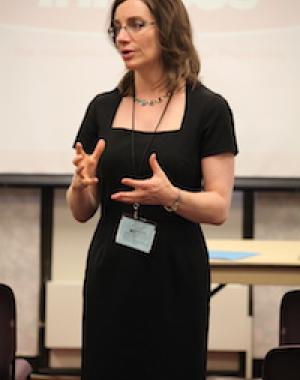Recently, I spoke with a graduate student in one of my courses on Catholic schools. Because she is not a religion teacher, she struggled to understand how she could carry out the mission of Catholic education. This faith-filled woman knew she was serving the Lord by fulfilling her duties conscientiously, but she did not recognize how her work could foster her students’ spiritual lives. She needed a vision for carrying out her educational activities in a way that leads her students to God. I illustrated for her how she could teach her subject area so that her students learned from it more about who God is and how He wants us to live. By teaching this way, I told her, they could not only prepare for the next grade level or their future job but they could also live in greater union with God and in preparation for Heaven. Her teaching, I explained, had the potential to impact students eternally. When she heard this she exclaimed, “You make me sound important!” We ended our call with her excited to tackle her upcoming tasks with this entirely new focus.
Unfortunately, this woman is not unique or even unusual among Catholic educators. Typically formed by secular educational programs that do not address the spiritual dimension of education, Catholic educators find themselves at a loss as to how they are to help students cultivate their relationship with God or recognize the eternal purpose to their studies. When teachers understand how to carry out their teaching duties with a “supernatural vision,” they experience excitement about enriching their students’ lives beyond just the next 70-odd years.[1] They begin to sense their value and importance to the Catholic educational endeavor. The result is a more effective mission implementation that bears fruit in time and eternity.
The Goal of a Catholic Education
Above all else, a Catholic education directs students to God. A Catholic education resembles a civic education by providing an integral formation for students, addressing not just the intellectual, but also the social, emotional, and (to some extent) physical growth of its students.[2] But unlike secular education, every Catholic educational effort should begin and end in Christ, with Gospel principles serving as educational norms.[3] This orientation directs students to their ultimate goal: eternal communion with God. In short, a Catholic education should help students get to heaven. It forms the student spiritually, teaching them to know God ever better, to have and develop a relationship with him, to recognize him in everything, to live so as to become closer to him and more like him—all so that they can spend eternity in a loving, blissful union with him.
A Catholic school can explicitly orient to God the myriad of activities that make up “school.” For this reason, it can be said that all teachers in Catholic schools are catechists. It can feel daunting to teachers who do not teach religion to hear that they are expected to be catechists because they believe they are expected to answer doctrinal questions that are beyond their capability. Certainly the better the teacher can accurately respond to doctrinal questions the greater the benefit to the students. But a teacher does not need a degree in theology to carry out teaching responsibilities with the intention that those activities form students to live as disciples of Jesus. The very activities that constitute the nature of a school, when imbued with a focus on the student’s eternal destiny, form and prepare the student for that destiny.
The rest of this online article is available for current Guild members.
This article is from The Catechetical Review (Online Edition ISSN 2379-6324) and may be copied for catechetical purposes only. It may not be reprinted in another published work without the permission of The Catechetical Review by contacting [email protected]


















